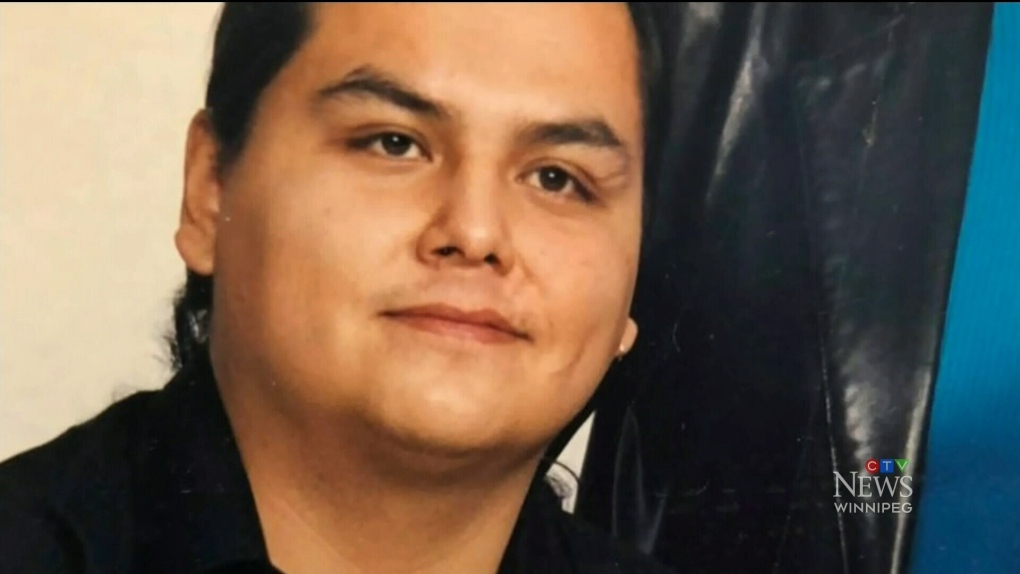Manitoba jail guard acquitted of all charges in death of Indigenous inmate
A Manitoba judge has found a provincial jail guard not guilty in the death of a First Nations inmate following a stand-off in the jail more than three years ago.
Robert Jeffrey Morden, a corrections officer in Manitoba, broke down in tears inside the Manitoba courtroom as Judge Tony Cellitti read his decision.
- The information you need to know, sent directly to you: Download the CTV News App
- Sign up now for daily CTV News Winnipeg newsletters(opens in a new tab)
“The evidence before me does not satisfy me of Mr. Morden’s guilt beyond a reasonable doubt on either of the two charges before me,” Cellitti said, acquitting him of the charges.
Morden had been charged with criminal negligence causing death and failing to provide the necessities of life in connection to the death of 45-year-old William Ahmo, an Indigenous inmate at the Headingley Correctional Centre (HCC).
“The death of William Ahmo represents a terrible tragedy,” Cellitti said. “What occurred… has no doubt had, and will continue to have, an immeasurable and lasting impact on the loved ones that Mr. Ahmo left behind.”
Ahmo died days after an hours-long stand-off with the jail’s guards on Feb. 7, 2021. Morden had been the leading the jail's tactical emergency response team that day.
During the trial, court was shown video evidence of the encounter. It showed the stand-off escalating as Ahmo could be seen breaking a mop handle into two, wielding the broken pieces and yelling at the officers.
“A crisis negotiator was brought in to attempt to bring things to a peaceful conclusion,” Cellitti said. “Those efforts were not successful.”
The court heard testimony from the jail’s crisis negotiator who believed Ahmo was experiencing a mental health crisis at the time.
Cellitti said Ahmo had been combative and unruly – screaming that he would die and go to Heaven, that he would kill anyone who entered the range, and that he was not afraid to die.
“Based on his words and actions, it is clear that Mr. Ahmo had demonstrated dangerous and violent behaviours prior to the CERU team entering the range, regardless of whether he was having a mental health crisis,” he said.
The decision was made for Morden’s unit to enter the range.
The video evidence shows Morden’s tactical unit, armed with batons, entering the jail range and bringing Ahmo to the ground, shackling his arms and legs, dragging him out, and putting him in a restraint chair.
The court heard during the entire encounter Ahmo told the guards he couldn’t breathe 27 times. He was taken to hospital where he died days later. Ahmo’s death was caused by brain injury due to a lack of oxygen stemming from cardiac arrest.
Cellitti said other contributing factors included Ahmo’s enlarged heart, the physiological stress he was under during the stand-off, and the pepper spray used that made it harder for him to breathe.
The Crown had argued Morden should have known Ahmo was in medical distress by his repeated pleas that he couldn’t breathe.
Defence had said Ahmo had resisted and struggled throughout the encounter, and further argued medical input was provided by two nurses and two members of Morden’s team.
“The accused had no reason to not trust or to not rely on their input regarding Mr. Ahmo’s condition,” Cellitti said in reviewing the defence’s arguments.
Ahmo’s family did not speak to reporters, but said the decision has left them deeply disappointed.
“My heart is broken,” said Ahmo’s mother Darlene said in a written statement. “I had hoped for justice for my son, but instead, we are left with more questions and no accountability for his death. William's life mattered, and to see no one held responsible is devastating.”
Must Watch
Top Videos
CTVNews.ca Top Stories

Jimmy Carter, a one-term president who became a globe-trotting elder statesman, dies at 100
Former U.S. president Jimmy Carter, a Georgia peanut farmer who vowed to restore morality and truth to politics after an era of White House scandal and who redefined post-presidential service, died Sunday at the age of 100.
1 hour ago
Trudeau, Biden, Trump, other world leaders remember former U.S. president Jimmy Carter
Former U.S. president and Nobel Peace Prize winner Jimmy Carter died Sunday at the age of 100. Upon news of his death, political figures and heads of state from around the world gave praise to Carter, celebrating his faith and time both in office and afterwards.
1 hour ago
Passengers describe travel nightmare after WestJet flight from Costa Rica cancelled
It was a travel nightmare that left more than 100 passengers, including Ottawa residents, stranded in Costa Rica this week.
1 hour ago
'We need new leadership': Atlantic Liberal caucus calls for Trudeau's resignation
The Atlantic Liberal caucus is calling on Prime Minister Justin Trudeau to resign as party leader in a letter expressing "deep concern" about the future of government.
3 hours ago
Man, 70, charged with stunt driving after going wrong way on Hwy. 401
Ontario Provincial Police have charged a 70-year-old driver who was allegedly driving the wrong way on Highway 401 on Sunday.
1 hour ago
'Pretty limited' options for Liberal MPs calling for leadership change
As calls mount within the federal Liberal Party for Prime Minister Justin Trudeau to step down as leader, one political analyst says there’s little his detractors can do to force his hand.
5 hours ago
Possible explosion at Metro Vancouver strip mall under investigation
Police and firefighters were called to the scene of a potential explosion at a Metro Vancouver strip mall Sunday morning.
3 hours ago
Eastern Ontario police arrest Scarborough resident found with nearly $50K of cocaine
Police in eastern Ontario charged a Toronto resident who was allegedly in possession of hundreds of grams of cocaine earlier this month.
3 hours ago
2 teenagers arrested, 1 suspect at-large after attack involving bear spray, machete
A pair of teenaged boys have been charged with aggravated assault after police said they attacked a man with bear spray and a machete Friday evening.


























































